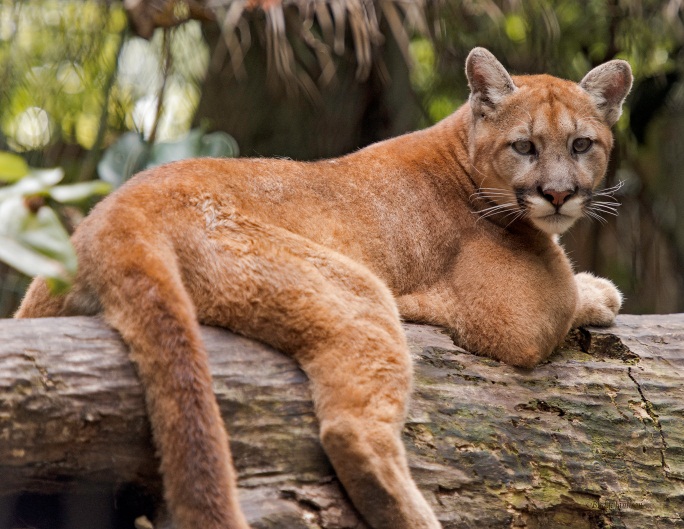
The Florida Panther, the state symbol, is one of the most threatened species on the planet. With 100-180 remaining, the threats of habitat loss, deaths by cars, and the increased pressure on remaining wild lands, their protection is of great importance.
Florida panthers (Puma concolor coryi) are a member of the big cat family. They are long-lived (from 5-10 years), have only a few young, and have large territories. They are a tawny color (kittens have spots for camouflage), weighing from 100 to 160lbs, and are 6 to 7 feet long. In some cases, their long tales have a crook at the end, due to inbreeding. They hunt mostly at night, feeding primarily on wild hogs and deer, and resting during the day.
With the listing of Critical Habitat recently denied by the 11th Court, protection by other means is of the essence. The greatest threat to Florida panthers is habitat loss. Highways and development are increasingly fragmenting Florida. We have enough infrastructure currently in place, which could be refurbished, to support the state’s growing population. With new developments, including new roads, Florida panthers are at a greater chance of being hit by cars - the leading cause of death in a year that has broken all previous records.
There is still time to stop the carnage and prevent the panther's extinction. By protecting Florida's vast interior rural landscape from development, creating wildlife corridors to connect conservation areas, and diverting panthers away from our roads, we can give the big cat a protected home and safe paths to travel.
Although FWS has stricken its decision to list Critical Habitat, the residents of southwest Florida have the opportunity to get ahead of the game by taking steps to increase conservation lands, prevent development within panther habitat, and work in a multi-stakeholder audience for education – all of which will contribute to improved species and land protection and a higher quality of life for residents and tourists alike.
How do we want Florida to be represented – as a concrete wasteland or something still a little wild that we can enjoy, explore, and protect? To find out more Contact Us , visit: http://www.sierraclub.org/florida/panther-habitat